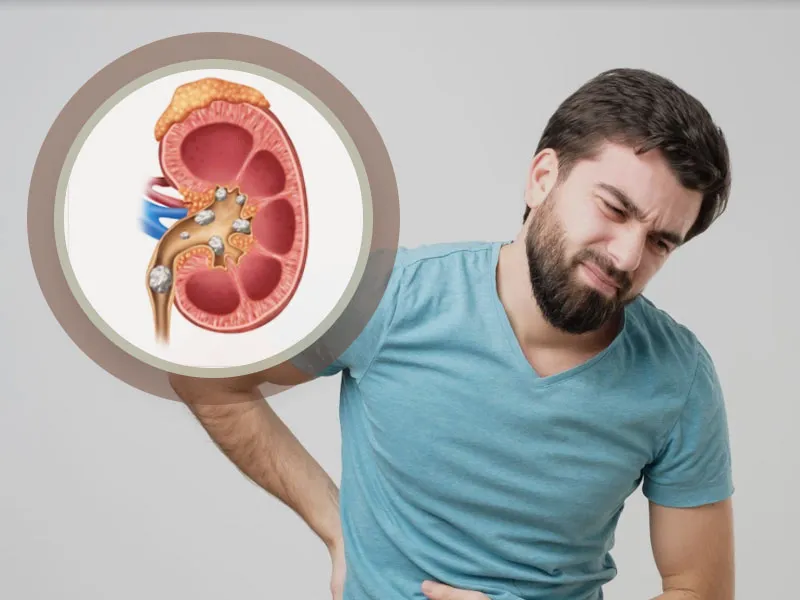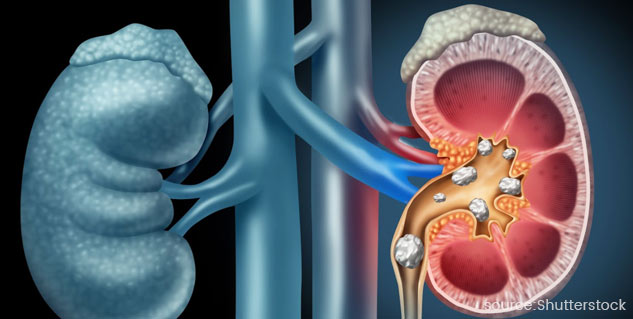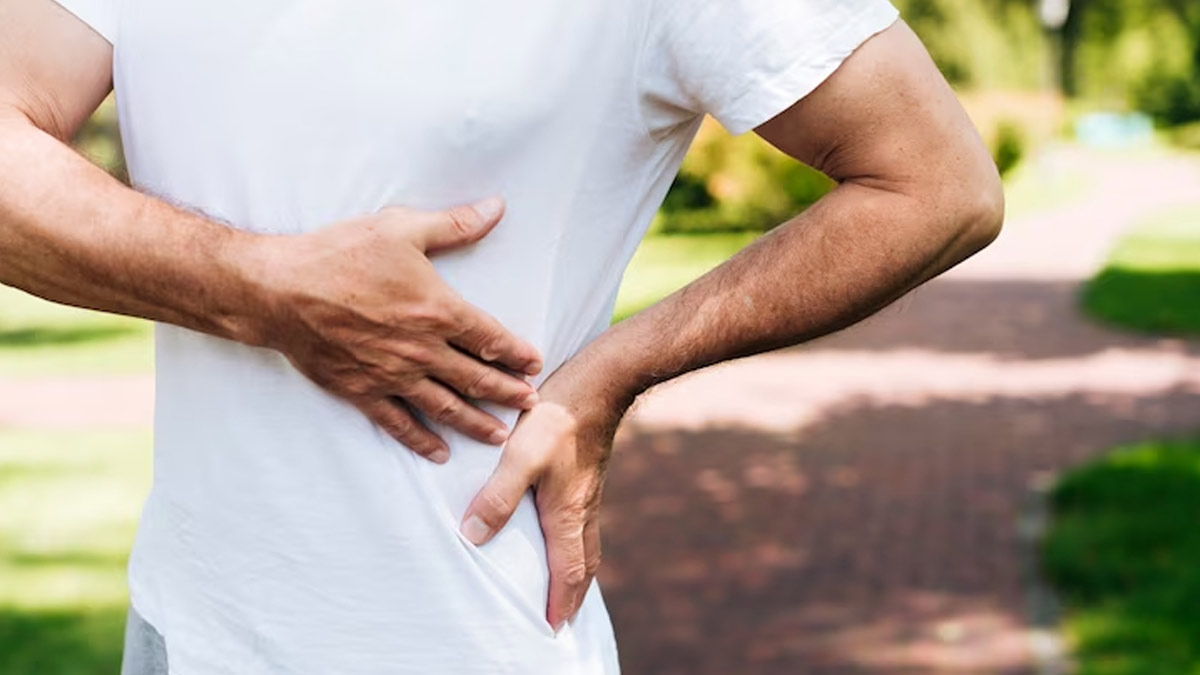
Kidney stones refers to small, painful crystal formations in the kidneys. The concerning thing is that they are becoming increasingly common in both genders. They form when minerals and salts in the urine become too concentrated and crystallise. But what causes them, more importantly, and how do you stop them from forming in the first place?
Table of Content:-
The editorial team of Onlymyhealth reached out to expert Dr Vikram Vora, Medical Director and Chief Health Officer (Indian Subcontinent), International SOS and he explained everything to us. Read ahead to know.
Understanding the Formation of Kidney Stones
According to Dr Vora, kidney stones develop when there is an imbalance in the composition of urine-either because of an excess of minerals like calcium, oxalate, or uric acid, or because of a deficiency in the fluid that will dilute them. Over time, these concentrated minerals stick together and form crystals that can grow into stones.
There is not a single type of kidney stone; rather, calcium oxalate, uric acid, struvite, and cystine stones have been categorised, each having a specific cause linked to it. Calcium oxalate stones are often associated with dehydration and a diet rich in oxalate-rich foods such as spinach, nuts, and beets. Uric acid stones are more common in people who eat a high-protein diet or have gout.
Also Read: What Is Skin Barrier? Expert Shares Causes of Damage and Ways to Repair It

Major Causes Behind Kidney Stones
According to Dr Vora the following are the major causes of kidney stones:
1. Dehydration
One of the leading causes of kidney stones is dehydration. This makes urine more concentrated, giving the minerals a higher chance to crystallise. Individuals working in hot environments or those who experience much sweating are at a higher risk.
2. Dietary Habits
Diets high in sodium, sugar, and animal protein initiate the formation of stones. Excess salt increases calcium in the urine, while too much protein may raise uric acid levels. Also, overconsumption of foods high in oxalates, like tea, chocolate, and some green vegetables, could lead to stone buildup.
3. Family History and Genetics
“If you have a family history of kidney stones, you are more likely to develop them. Certain inherited genetic disorders may also increase your risk for stones,” Dr Vora said.
4. Obesity and Sedentary Lifestyle
Obesity can change the balance of acids in the urine, raising the risk for uric acid and calcium stones. Inactivity can also reduce the metabolic rate and kidney function.
5. Certain Medical Conditions
Conditions that may heighten the risk include urinary tract infections, inflammatory bowel disease, hyperparathyroidism, and repeated dehydration from vomiting or diarrhea.
6. Medications and Supplements
Excessive use of calcium and vitamin D supplements, diuretics, and some medications used to treat migraines and depression may raise calcium or uric acid levels in urine and favor stone formation.
Also Read: Is Osteoporosis Only a Concern for Older Women? Expert Suggests Risks For Younger Generation

How to Prevent Kidney Stones
Prevention mainly revolves around changes in lifestyle and diet. According to Dr Vora, staying hydrated is the first line of defense. “Aim for at least three liters of water daily. Proper hydration helps dilute minerals in urine, reducing the risk of crystallisation,” he said. Other prevention tips include:
1. Drink plenty of water
A good rule of thumb is that if you're drinking enough, your urine will be clear or pale yellow. Good options include coconut water and lemon water; both have citrate, which can help keep stones from forming.
2. Eat a Balanced Diet
“Decrease the intake of salt, processed foods, and red meat,” Dr Vora suggested. Include more fruits and vegetables, most especially citrus fruits like oranges and lemons, which naturally help prevent stone formation.
3. Limit Oxalate-Rich Foods
When it comes to kidney stones moderation is the key. Don’t completely avoid the food with oxalate, but combining it with calcium foods, such as milk or yoghurt, allows the gut to bind oxalate and not pass to the kidneys
4. Exercise Regularly and Keep Healthy Weight
Regular exercise supports kidney health by promoting and maintaining appropriate metabolic functions.
5. Consult a Doctor for Recurring Cases
If you have had stones before, medical evaluation and urine analysis may help determine specific causes for which preventive strategies can be more precisely tailored. In some cases, medications may be recommended in order to keep calcium or uric acid levels under control.
Bottomline
Although small, kidney stones have a massive impact. With proper hydration and dietary balance and awareness of risk factors, you can significantly reduce your chances of developing kidney stones and maintain healthy kidneys for life.
Also watch this video
FAQ
1. Can drinking more water really prevent kidney stones?
Yes. Staying hydrated dilutes minerals in urine, preventing the tendency to form crystals that lead to kidney stones.2. Are all kidney stones caused by calcium?
Not always. Whereas calcium oxalate stones are the most common, others can be formed from uric acid, cystine, or struvite, depending on diet, genetics, and health conditions.3. What are foods I should avoid to help prevent kidney stones?
Limit foods high in salt, red meat, and processed foods, including oxalate-rich items like spinach, nuts, and chocolate. Meanwhile, balance meals with enough water intake and calcium-rich foods.
How we keep this article up to date:
We work with experts and keep a close eye on the latest in health and wellness. Whenever there is a new research or helpful information, we update our articles with accurate and useful advice.
Current Version
Nov 01, 2025 12:30 IST
Published By : Tanya Srivastava